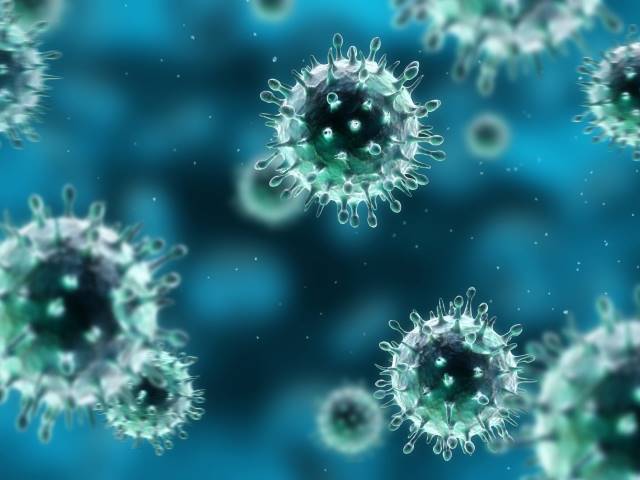Swine Flu Alert: UK Detects Unusual Strain – Important Details Revealed

LONDON-UK: A novel strain of swine flu has been identified in a person for the first time in the UK. The individual from North Yorkshire was diagnosed during routine national flu surveillance after reporting breathing issues to their GP, according to Sky News.
The person had no known contact with pigs and has since fully recovered. The UK Health Security Agency (UKHSA) is closely monitoring the situation and enhancing surveillance within existing programs involving GP surgeries and hospitals.
While it remains unclear how transmissible the strain is or if there are other cases in the UK, the UKHSA has informed the World Health Organization (WHO) of the development. The strain is distinct from recent human cases of H1N2 globally but resembles viruses found in UK pigs. It is too early to determine if the strain poses pandemic potential, reported the Sky news.
How viruses transmit from animals to human?
It is possible for a virus to be transmitted from animals to humans. This is called zoonosis. Zoonotic diseases can be caused by viruses, bacteria, parasites, and fungi.
There are many ways in which viruses can be transmitted from animals to humans. Some of the most common ways include:
Direct contact: This can happen when you touch an infected animal or its body fluids, such as blood, saliva, or urine. For example, you could contract the rabies virus from a bite from an infected dog.
Indirect contact: This can happen when you touch something that an infected animal has touched, such as its feces, fur, or bedding. For example, you could contract the hantavirus from inhaling dust that has been contaminated with rodent droppings.
Vector-borne transmission: This happens when a virus is transmitted by a blood-sucking insect, such as a mosquito, tick, or flea. For example, the Zika virus can be transmitted by the Aedes aegypti mosquito.
Foodborne transmission: This can happen when you eat contaminated food or water. For example, you could contract the hepatitis E virus from eating contaminated pork or shellfish.
Airborne transmission: This can happen when you breathe in airborne droplets from an infected animal. For example, you could contract the influenza virus from an infected bird.
It is important to take steps to prevent the transmission of zoonotic diseases. Some of the most important things you can do include:
- Washing your hands frequently with soap and water: This is especially important after you have been in contact with animals or their body fluids.
- Avoiding contact with wild animals: This includes not feeding or petting wild animals, and not handling their carcasses.
- Cooking food thoroughly: This will kill any harmful viruses or bacteria that may be present in the food.
- Using insect repellent: This will help to protect you from mosquito bites, ticks, and fleas.
- Getting vaccinated: There are vaccines available for some zoonotic diseases, such as rabies and hepatitis B.
If you think you may have been exposed to a zoonotic disease, it is important to see a doctor right away. Early diagnosis and treatment can help to prevent serious complications.
Swine Flu
Swine flu, also known as H1N1 influenza, is a respiratory disease caused by an influenza virus that originated in pigs. Swine flu viruses are typically found in pigs, but they can infect humans as well.
Symptoms: Swine flu symptoms are similar to those of regular seasonal flu and may include:
- Fever
- Cough
- Sore throat
- Runny or stuffy nose
- Muscle aches
- Fatigue
- Headache
Transmission: Swine flu is spread through the same way as regular seasonal flu, which is through respiratory droplets produced when an infected person coughs or sneezes. These droplets can land in the mouths or noses of people who are nearby or possibly be inhaled into the lungs.
Prevention
There are a number of things you can do to help prevent swine flu, including:
- Getting a flu vaccine
- Washing your hands often with soap and water
- Avoiding close contact with sick people
- Covering your mouth and nose with a tissue when you cough or sneeze
Treatment
Most people with swine flu will get better on their own within a week or two. However, there are antiviral medications that can help to shorten the duration of the illness and make it less severe.
Outbreaks
There have been several outbreaks of swine flu since the first one was identified in 2009. The most recent outbreak was in 2012.
Overall, swine flu is a respiratory disease that can be spread from pigs to humans. It is important to take steps to prevent swine flu, such as getting a flu vaccine and washing your hands often. Most people with swine flu will get better on their own, but there are antiviral medications that can help to treat the illness.








